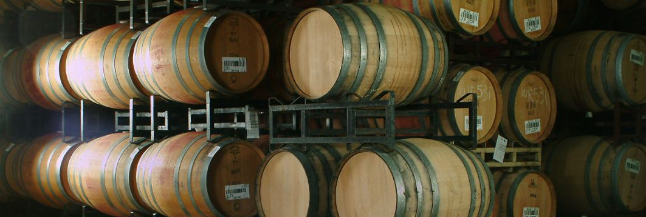California wine producers claim B.C. liquor reforms violate NAFTA, GATT, and EU-Canada Agreement

Straight.com | 26 Jan 2015
California wine producers claim B.C. liquor reforms violate NAFTA, GATT, and EU-Canada Agreement
by Charlie Smith
The association representing California wine producers has called on Premier Christy Clark to revoke or modify plans to favour the sale of B.C. wines in grocery stores.
In a January 21 letter to the premier, Wine Institute objects to three policies announced last month, claiming that "they violate Canada’s international trade obligations including NAFTA, GATT and the EU-Agreement on wine sales".
Tom LaFaille, vice president and international trade counsel of Wine Institute, noted in the letter that the U.S. and Canadian governments work closely through the World Wine Trade Group, the Asia-Pacific Economic Cooperation Wine Regulatory Forum, and the U.S. Tax and Trade Bureau/Wine Institute International Technical Forum.
This is done, he stated, "with the goals of removing discriminatory barriers and facilitating international trade".
"Proposals that raise new barriers to trade, such as B.C.’s initiative, run counter to these important international cooperation efforts and must not be supported," LaFaille wrote. "For these reasons, Wine Institute requests that the initiative be withdrawn or modified to allow for equal access of all wines at B.C. grocery stores."
Specifically, Wine Institute opposes allowing grocery stores to sell 100 percent B.C. wine on designated shelves, starting April 1.
In addition, Wine Institute expressed concerns about the B.C. government’s plan to grant a limited number of new licences allowing grocery stores to sell only B.C. wines.
Wine Institute also objects to the government’s intention to allow existing VQA stores and independent wine stores to transfer their licences to grocery stores as long as those grocers only sold B.C. wines.
LaFaille pointed out that these licences, which were announced on December 19, are not subject to the "one-kilometre rule", which applies to the sale of private liquor store licences to grocery stores. Under that rule, a licence cannot be purchased by a grocery store if there’s another public or private liquor-store licence within a kilometre.
The Straight has left a message with Wine Institute’s office in Washington, D.C., to inquire if any California wine producers will challenge the B.C. government’s policy under NAFTA. As of this writing, the message hasn’t been returned.
Under Chapter 11 of NAFTA, companies can file complaints against the federal and provincial governments and seek compensation if it can prove that its investor rights and protections were violated. A three-member panel of arbitrators issues a ruling and can award an unlimited amount of public funds to the complainant.
In a paper called "Democracy Under Challenge: Canada and Two Decades of NAFTA’s Investor-State Dispute Settlement Mechanism", Canadian Centre for Policy Alternatives researcher Scott Sinclair noted that investors do not need consent from their home countries to launch a trade challenge.
"Claimants can challenge government measures that are allegedly unfair or inequitable (NAFTA Article 1105), discriminatory (NAFTA Articles 1102 and 1103), constitute direct or indirect expropriation (NAFTA Article 1110) or apply performance requirements such as local development benefits (NAFTA article 1106)," Sinclair wrote.
Wine Institute’s letter stated that California producers represent 90 percent of U.S. wine production and 95 percent of U.S. wine exports.
"More than one hundred U.S. wineries, most of which are small and medium sized enterprises, export their products into the global marketplace, including British Columbia (B.C.) and other Canadian Provinces," LaFaille wrote. "U.S. wine is the largest import category in the B.C. market."
His letter to Clark was copied to Justice Minister Suzanne Anton and her parliamentary secretary, John Yap, as well as to Deputy Premier Rich Coleman and International Trade Minister Ed Fast.
In addition to being premier, Clark is the B.C. Liberal MLA for Westside-Kelowna, which is home to several Okanagan wineries.





